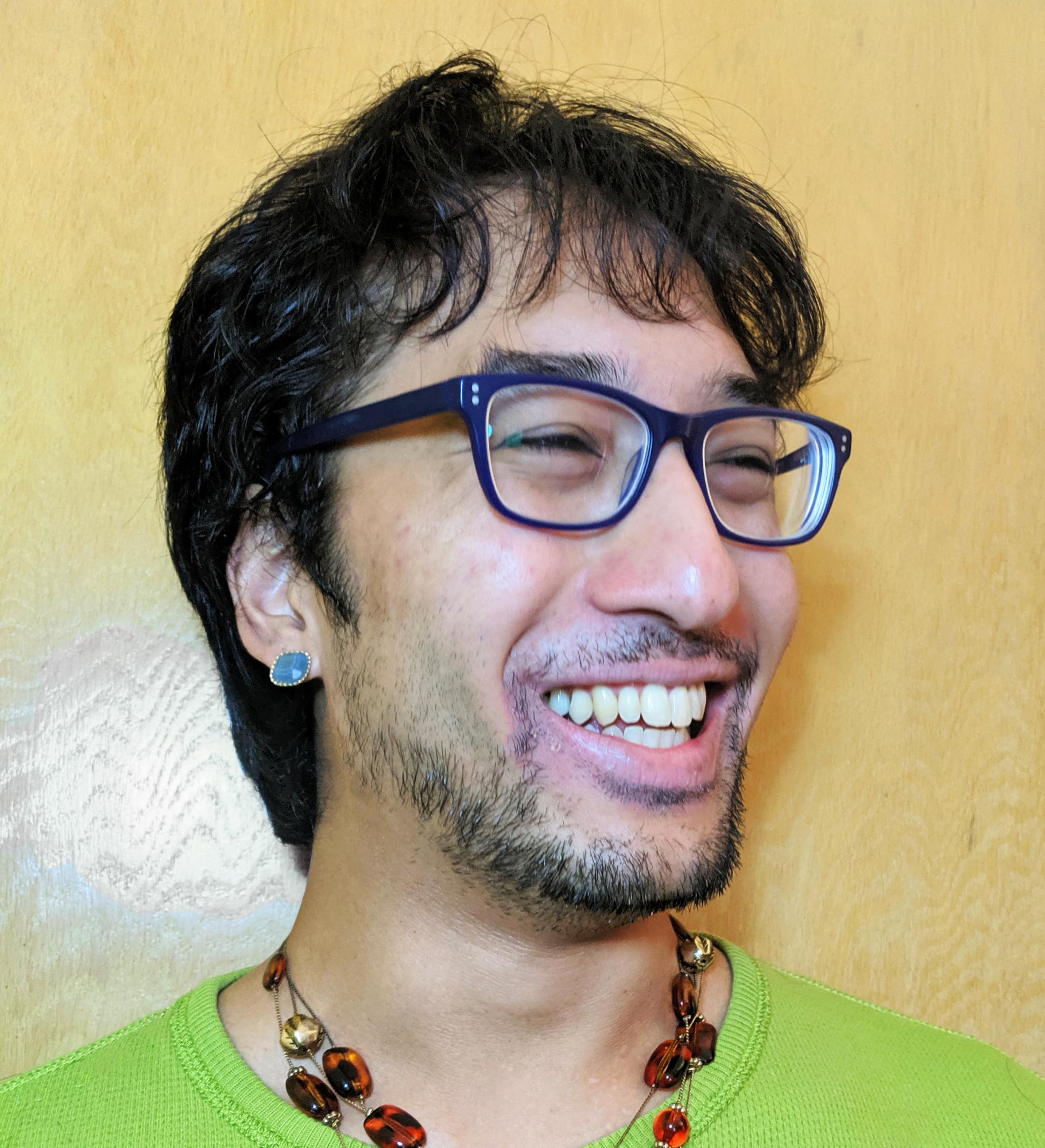Meet Teaching Artist Nicola Koh


Nicola Koh is a Malaysian Eurasian twelve years in the American Midwest, a Christian apostate with degrees from a Calvinist seminary, and a minor god of Tetris. They hold an MFA from Hamline University and were a 2018 VONA/Voices fellow in fiction. Their work has appeared in Crab Orchard Review, Sweet: A Literary Confection, Minnesota Women's Press, Southwest Review, the Brown Orient, and others. Their hobbies include taking too many pictures of their cat and dog frenemies, crafting puns, and fixing things.
See nicolakoh.com for more, and find Nicola's current classes on their artist page.
***
When did you start teaching? What path—career or otherwise—brought you here?
I started with some assistant positions while doing my MFA at Hamline University. The first was for the introduction to creative writing class at Normandale.
Teaching is kind of in my DNA. My parents have been in Christian education since the early 80s (and the lack of opportunity for women was the reason they left the Catholic Church). My mom also taught supplementary classes in some colleges in Malaysia, and when my brother and I started homeschooling (age 15 and 10 respectively), she was our main teacher.
Because of that I've always had an eye out for what makes an effective teacher and how different materials could be taught. I've been lucky to have a lot of great teachers and mentors in my (way too many) years of higher ed, and that's really given me a good bit of insight.
How would you describe your teaching style?
I try not to position myself as the "expert"; I much prefer acting a facilitator among peers. To me, the most effective forms of teaching are the ones that don't so much impart as inspire, and the greatest understanding comes when we find the answer ourselves rather than when we are given it. To that end, I try to provide a framework and guidance to sort through the buckets of information and insights so that those in the class can come into a truer possession of the knowledge. Honestly, I'm happier if through working it out, someone comes up with a different, even contrary, answer to me, because that will be *their* answer.
When it comes to imagining and creating classes, where do your ideas come from? What in particular inspires you?
The best classes to teach are the ones we can spend hours on driving people nuts. The subjects I want to teach grow in my consciousness over months and years of thinking, experiencing, admiring, and enthusing.
I'm a writer because I'm a reader, and great books have always been the best inspiration (along with great movies for the skills that overlap, like plot, character development, tension, etc). Bad books can also be a good source of insight to highlight what makes a piece of writing work when it does.
I also gain a lot from other writers within my community and beyond.
What's the ideal environment for your classroom? What atmosphere are you hoping to establish?
I try to center people's needs as individuals and as a group. Everyone has different ways of learning, and I generally don't see it as my role to urge people out of their comfort zones, which includes calling on people to share. So I provide a variety of different exercises and activities designed to play to people different strengths.
Nurturing a group's dynamic is also important to me, so I approach every class differently. I want everyone to feel included in ways that make them comfortable.
I also believe a classroom should be a safe space, which to me is less about giving people license to say what they want, but making sure no one ends up feeling attacked, explicitly or implicitly.
I am not trained in facilitating hard conversations around race, gender, QLGBIA+ issues, etc, and I don't think it's appropriate for my classes to be places for these hard conversations. It invariably puts pressure on those whose identities are being discussed to be the "teacher" when all they wanted to do was write, and also can easily create a hostile environment for those people.
Regardless of what your class is specifically focusing on, what's the main goal you have for your students?
I love when people in my class leave feeling more inspired and confident in themselves as writers. Sometimes the material can clear up confusion or provide insight; sometimes writers just need a reminder when they are in the weeds of a piece. Whatever the case, I want what I teach to stir the joy of writing and give people the tools to keep growing.
What are goals you have for yourself? These could be teaching goals, writing goals, career goals, community goals, etc.
Over the last few years I've been really contemplating the prototype for the writer, which for me is the communal story teller. They say that villages used to be built around everybody's strengths, and that everyone had a role, and that everyone's role was just as important as the next. The storyteller to me was one such role, one that provided avenues for memorialisation, celebration, inspiration, and entertainment.
I'm easily given to the narrative of writers as influencers of culture and society and protectors of truth and beauty, and I think for a long while that narrative wasn't leaving room for my true writerly dreams.
In short, I want to be the kind of writer that I can be proud of, working tirelessly to perfect things even when they draw little to no attention. I've come to believe that when you're true to your art, your audience will find you. And if I give a handful of people something they need, that's enough for me.
What have been some of your own favorite educational experiences?
As aforementioned, I've been getting educated for far too long, so here are some, in chronological order:
- A winter interim in New England studying the writers there
- A class on recent children's literature
- My religion major capstone where I wrote about the need for a Protestant Mariology
- An interim in New Mexico studying Chicano and Native American lit from that region
- An advanced ancient Hebrew seminary class translating the Joseph novel in the book of Genesis
- A seminary class on 17–19th century western christian philosophy
- MFA core introduction class and Groundings in Poetry with Deborah Keenan
- Fantasy with Emma Bull
- Advanced Fiction with Sheila O'Connor
- Memoir with Patricia Francisco
- VONA/Voices Fellowship in Fiction with M. Evelina Galang
- Loft Mentor Series
To you personally, what is the most important part of the literary arts?
I believe the greatest power of art is to draw out our rawest humanity.
For 99 percent of our adult time on earth, we filter our lives through constructs, intellectual shortcuts, generalisations, abstractions. Even on the neurological level, the brain distills the information we receive through our senses into what it sees as most important, blurring out and even cutting the rest (which is why we stop noticing ever-present smells, sounds, sights, etc). It's something we need to do to go about our days and do the things we need to do.
The downside is we can become so lost in these artifices that we start to lose touch with what we are truly feeling and experiencing.
I think art has a way of removing the veil, even when it's just for a second—being caught by something in a painting, a piece of music that suddenly chokes you, the wrench of a character's loss. That does something that can't really be measured.
